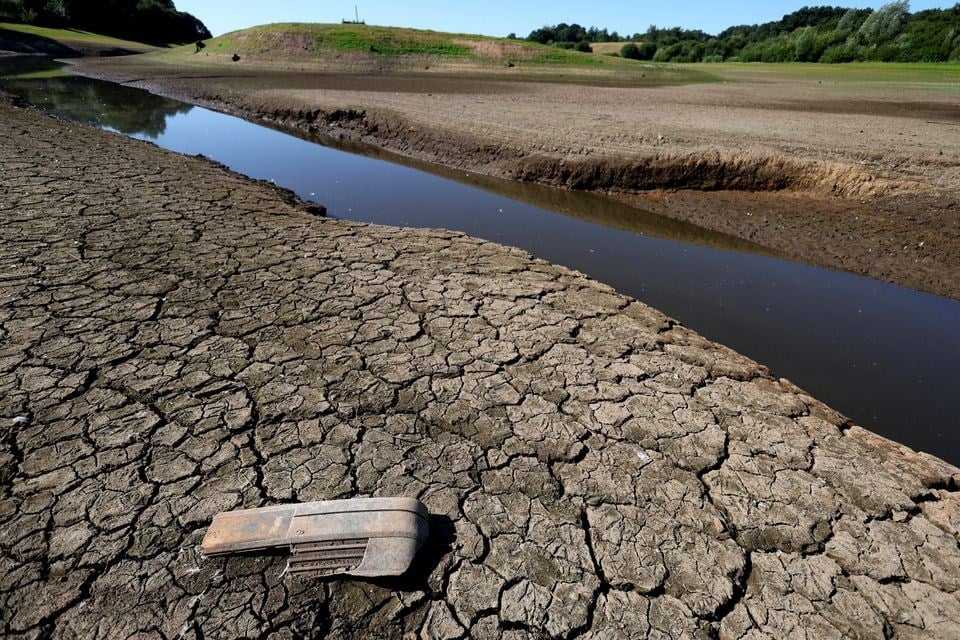UK fails to invest in water networks to avoid severe droughts
Britain is feeling the repercussions of climate change and is not doing much - or anything - about it.
-

Cracks can be seen on the dried-up river bed of Tittesworth Reservoir, in Leek, United Kingdom, August 12, 2022. (Reuters)
England has been failing to invest in the water networks needed to avoid recurring droughts in the future, as the current policies amount to the government "keeping [its] fingers crossed," according to the UK's infrastructure chief.
Read next: UK failed to protect people from climate change: Expert
Water systems could not cope with climate change, and the current drought in England testifies to this, argues John Armitt, chair of the National Infrastructure Commission, noting that more hot dry spells are being interspersed with heavier rainfall.
“Investment is better than keeping your fingers crossed, and than relying on emergency measures,” he warned, arguing that ministers could not prevent dry weather, but they could make direct investments into infrastructure to cope with it, such as reservoirs and cutting wastage.
“The government should set out what degree of risk from drought they would see as reasonable, for people to manage and expect," he said.
Water bills may have to go up to pay for the investment, he said.
“If you want greater resilience to drought, then you have to increase water bills or general taxation [to pay for it],” he told the Guardian.
On Friday, drought was declared in 8 of 14 of England's regions after a meeting among the National Drought Group, a committee made of ministers, civil servants, water companies and conservation groups.
Read more: Global warming sharply escalated the risk, severity of heat in UK
Five water areas have so far assembled hosepipe bans, although farmers have sent out calls for more as ministers were notified that farmers have been facing damages for up to half their crops.
In a number of areas in southern England, people have been forced to stand in lines n the street, relying on tankers as their water systems fail, such as what has been going on in Northend, Oxfordshire.
In and near Guildford in Surrey, water bottles were handed out over the weekend after Netley Mill treatment works experienced a pump fail.
These separate incidents have been triggering memories among many Brits, namely the last serious doubt in England which happened in 1976.
The estimated cost of refurbishing the UK's water networks is £20 billion ($24.17 billion) by 2050, which is significantly less than the £27 billion ($32.63 billion) that Downing Street has allocated for new roads recently, which campaigners are saying isn't necessary.
Read more: CCC report: UK will not make it to net zero in time
Armitt has called for a national debate on how to fund water network repairs, and although the two Tory candidates Liz Truss and Rishi Sunak have called for action, they have not set out clear-cut proposals on investing in projects.
The role of water companies, in addition, should be taken into account and criticized, according to Armitt: “There has been criticism of water companies paying dividends to investors. That has to be an issue for governments and regulators to decide,” he said. “You can argue that water companies have invested too little – going forward, the real challenge is for government to say what level of performance the public should be entitled to expect."
Last month, an emergency climate briefing was held in the UK parliament: Only 60 of 650 UK MPs were committed to attending the briefing. The briefing was based on the slides that were presented to UK prime Minister Boris Johnson prior to Glasgow’s UN climate summit, COP26, that took place back in November of 2021.

 4 Min Read
4 Min Read









